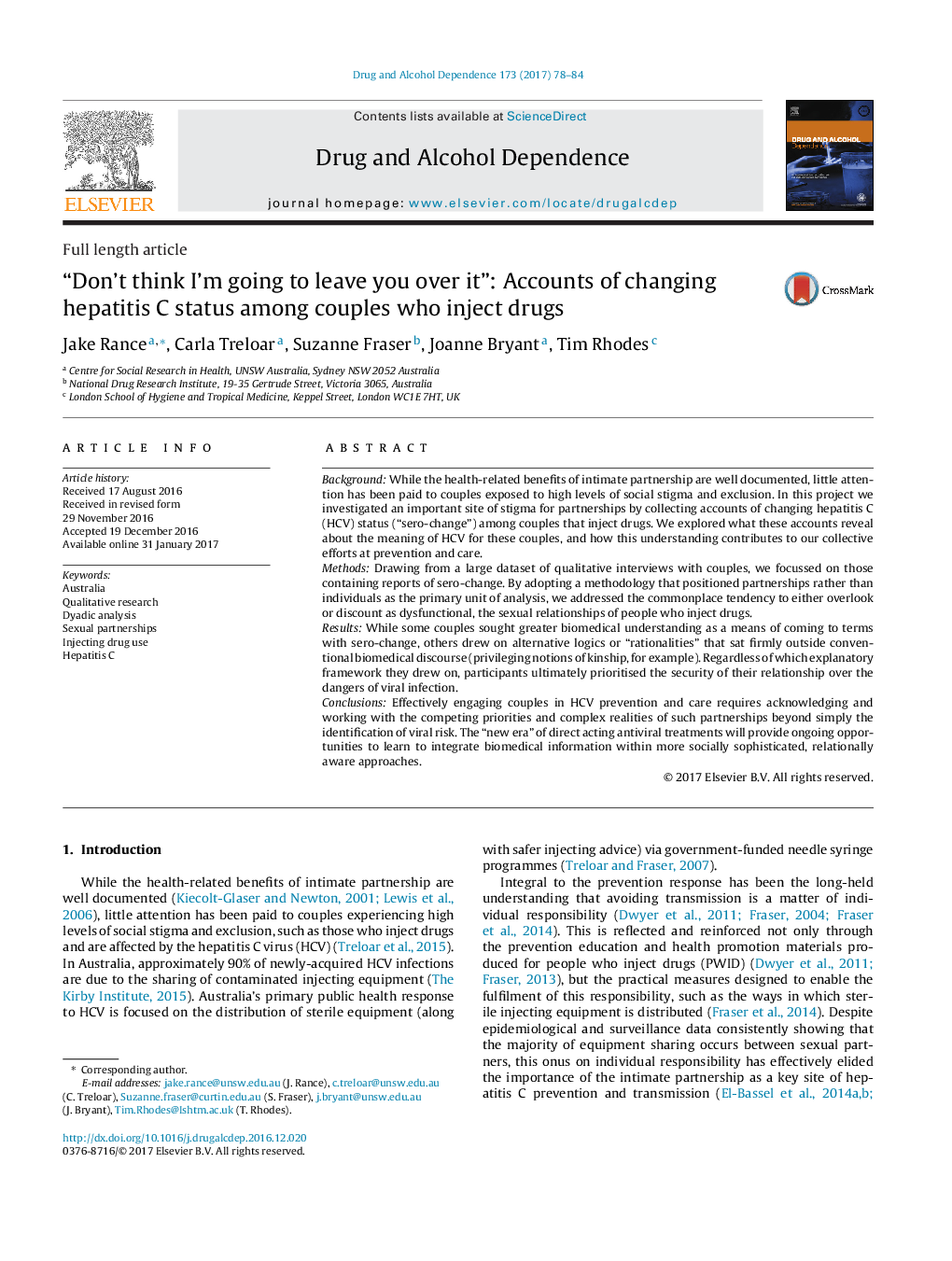| کد مقاله | کد نشریه | سال انتشار | مقاله انگلیسی | نسخه تمام متن |
|---|---|---|---|---|
| 5120156 | 1486118 | 2017 | 7 صفحه PDF | دانلود رایگان |

- Addresses paucity of research on the intimate partnerships of people who use drugs.
- Focusses on accounts of changing hepatitis C status among injecting couples.
- Innovative approach positions 'the couple' as primary unit of analysis.
- Couples used alternative rationalities and biomedicine to make sense of serostatus.
- Negotiating viral risk part of competing priorities, complex realities of intimacy.
BackgroundWhile the health-related benefits of intimate partnership are well documented, little attention has been paid to couples exposed to high levels of social stigma and exclusion. In this project we investigated an important site of stigma for partnerships by collecting accounts of changing hepatitis C (HCV) status (“sero-change”) among couples that inject drugs. We explored what these accounts reveal about the meaning of HCV for these couples, and how this understanding contributes to our collective efforts at prevention and care.MethodsDrawing from a large dataset of qualitative interviews with couples, we focussed on those containing reports of sero-change. By adopting a methodology that positioned partnerships rather than individuals as the primary unit of analysis, we addressed the commonplace tendency to either overlook or discount as dysfunctional, the sexual relationships of people who inject drugs.ResultsWhile some couples sought greater biomedical understanding as a means of coming to terms with sero-change, others drew on alternative logics or “rationalities” that sat firmly outside conventional biomedical discourse (privileging notions of kinship, for example). Regardless of which explanatory framework they drew on, participants ultimately prioritised the security of their relationship over the dangers of viral infection.ConclusionsEffectively engaging couples in HCV prevention and care requires acknowledging and working with the competing priorities and complex realities of such partnerships beyond simply the identification of viral risk. The “new era” of direct acting antiviral treatments will provide ongoing opportunities to learn to integrate biomedical information within more socially sophisticated, relationally aware approaches.
Journal: Drug and Alcohol Dependence - Volume 173, 1 April 2017, Pages 78-84